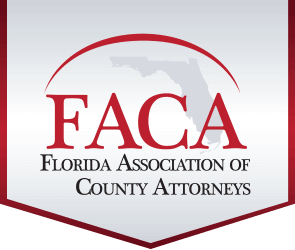REDISTRICTING
Evenwel v. Abbott
No. 14-940, Jurisdiction Noted May 26, 2015
Appeal of 2014 WL 5780507
This is an appeal from the U.S. District Court, Western District, Austin Division, Texas, in which a three-judge panel dismissed Evenwel’s constitutional challenge to a Texas Senate apportionment plan (Plan S172), which created Senate districts with equal total populations. Evenwel’s challenge to the Senate districts is that Plan S172 apportions the number of residents rather than eligible voters, alleging, that method dilutes voting power. The district court dismissed Evenwel’s complaint for failure to state a claim citing that Texas’s choice of a population base is not judicially reviewable.
Under the Equal Protection Clause, the “one-person one-vote” principle requires that voting districts have approximately the same population so that votes in each district count equally. The question posed to the U.S. Supreme Court is which population is relevant – total population or total voting population?
Historically, the Supreme Court has not resolved whether voting districts should have the same number of people, or the same number of eligible voters. Oral argument was held on December 8, 2015.
ANTI-CORRUPTION LAW
McDonnell v. United States
No. 15-474, Jurisdiction Noted January 15, 2016
Appeal of 729 F.3d 478 (4th Cir. 2015)
This matter is on appeal from the U.S. Court of Appeals, 4th District, in which the petitioner, former Virginia governor Robert F. McDonnell, was convicted of various counts of “honest services” wire fraud, conspiracy to obtain property of official right, and obtaining property under color of official right. Upon conviction, a Petition for Writ of Cert was filed with the Court presenting two questions:
I. Under the federal bribery statute, Hobbs Act, and honest-services fraud statute, 18 U.S.C. §§ 201, 1346, 1951, it is a felony to agree to take “official action” in exchange for money, campaign contributions, or any other thing of value. The question presented is whether “official action” is limited to exercising actual governmental power, threatening to exercise such power, or pressuring others to exercise such power, and whether the jury must be so instructed; or, if not so limited, whether the Hobbs Act and honest-services fraud statute are unconstitutional.
II. In Skilling v. United States, this Court held that juror screening and voir dire are the primary means of guarding a defendant’s right to an impartial jury against the taint of pretrial publicity. 561 U.S. 358, 388-89 (2010). The question presented is whether a trial court must ask potential jurors who admit exposure to pretrial publicity whether they have formed opinions about the defendant’s guilt based on that exposure and allow or conduct sufficient questioning to uncover bias, or whether courts may instead rely on those jurors’ collective expression that they can be fair.
On January 15, 2016, the Court granted the Petition for Writ of Cert only as to question I presented. Oral argument was held in this matter on April 27, 2016. On June 27, 2016, the U.S. Supreme Court vacated the Governor’s convictions and remanded the case back to the lower court, finding that the instructions to the jury concerning the meaning of the term “official act” were incorrect. The Supreme Court adopted a more limited interpretation of an “official act” by a public official. To read the opinion in its entirety, please click here. To read an overview and analysis of McDonnell prepared by the Leon County Attorney’s Office, please click here.
